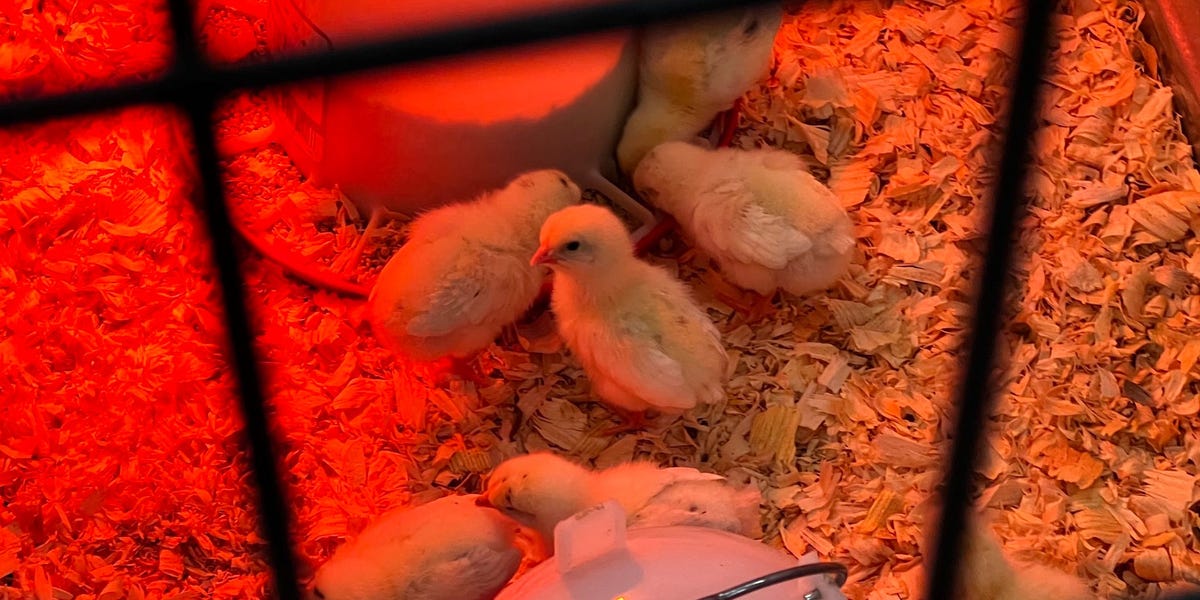As US egg prices reach all-time highs, Tractor Supply Co. seems to be experiencing a notable increase in sales. The rural retailer is reportedly selling out of baby chicks as soon as they are restocked, according to one analyst.
Baby chicks play a significant role in Tractor Supply’s strategy; however, it remains to be seen if shoppers are truly saving money at this point. In light of soaring egg prices, many Americans are rethinking the traditional chicken-and-egg discussion.
Mizuho analyst David Bellinger noted a surge in customer interest in Tractor Supply stores as they flock to acquire baby chickens instead of purchasing eggs. His analysis was prompted by January inflation data, which highlighted eggs as a key factor influencing overall food price hikes.
“You got this nice big setup for all these chicks, and they were just all empty,” Bellinger remarked following a visit to a Tractor Supply location in New Jersey. “They were like, ‘Yeah, we got 300 chicks and we sold out instantly, like, within ten minutes.'” He further reported that a South Carolina store had customers lining up outside before opening, selling over 700 chicks in a single day.
The sales spike is likely supported by the annual Chick Days promotion, but Bellinger noted the timing could not have been more advantageous in attracting customers.
A representative from Tractor Supply confirmed the significant interest this year, stating, “Compared to 10 years ago, we are selling more than double the number of live birds and a much greater variety of breeds. Additionally, the number of annual poultry shoppers in our stores has increased by more than 50% over the past five years.”
Bellinger and his team contacted over 100 Tractor Supply locations, most of which reported similar sell-outs. “Every call is about chickens. You’re our 80th call today,” he recounted from a mid-morning call to a store in Pennsylvania.
While data on the current season is still being compiled, CEO Hal Lawton stated that the company sold over 11 million birds during the previous year’s spring event. Lawton also mentioned that poultry sales have become competitive with livestock and equine categories.
Despite the allure of purchasing chicks—at approximately $6 each—Bellinger found that most chicken flocks consist of around 14 birds, making it unlikely for customers to see any significant savings in the near term. Purchasing chickens for egg production doesn’t equate to a cost-saving strategy.
Although chicks aren’t exorbitantly priced, they are an essential part of Tractor Supply’s initiative to attract “backyard homesteaders.” But raising chickens entails more than just buying the birds; owners require coops, fencing, feed, and occasional veterinary care. Interestingly, some chicken owners are even investing in playful items for their pets, such as tiny xylophones or egg-shaped disco balls.
The company spokesperson agreed that the venture isn’t primarily about saving money, noting, “We expect that egg prices may encourage those who have been considering the hobby to finally make the leap. However, it’s important to remember that it takes about 18 to 22 weeks for chickens to mature and start laying eggs,” she explained.
Bellinger has yet to conduct a comparative analysis between the costs of store-bought eggs and raising backyard chickens, despite several inquiries on the topic. He shared insights from chicken owners who report receiving up to 100 eggs weekly, providing ample supply for their families while often donating or selling the surplus.




